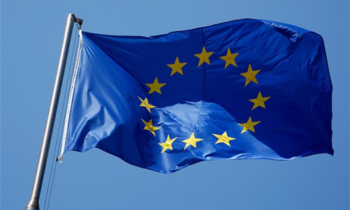 The Ministry of Petroleum and Energy presented its assessment of the full scale carbon capture, transport and storage (CCS) project in Norway. The Government proposes to fund FEED studies (Front End Engineering and Design studies) with 80 million NOK in 2018. The total funding for the demonstration project in 2018 amounts to 280 million NOK, including funds transferred from 2017. The proposed funds for 2018 will cover FEED studies of CO2 transport, storage and up to two capture facilities.
The Ministry of Petroleum and Energy presented its assessment of the full scale carbon capture, transport and storage (CCS) project in Norway. The Government proposes to fund FEED studies (Front End Engineering and Design studies) with 80 million NOK in 2018. The total funding for the demonstration project in 2018 amounts to 280 million NOK, including funds transferred from 2017. The proposed funds for 2018 will cover FEED studies of CO2 transport, storage and up to two capture facilities.
Both the Intergovernmental Panel on Climate Change (IPCC) and the International Energy Agency (IEA) point to CCS as a necessary option to reduce global greenhouse gas emissions in line with the climate goals at the lowest possible costs.
In the years to come, the climate challenge demands a great effort, which will have to be met within a tighter scope in the budgets. Considerable resources are prioritized for climate options in the Norwegian government budgets. A decision to contribute to financing investment in and operation of a Norwegian full-chain CCS project has to be weighed against other climate measures. The Government has to choose effective measures that maximize the mitigation effect in a cost efficient manner.
The Government has appraised the demonstration project for CO2 capture and storage since 2015. In the autumn 2017, Norcem, Yara and Fortum Oslo Varme concluded concept studies on CO2 capture at their industrial sites. These concept studies have now been reviewed through the external quality assurance process for large Governmental projects. The Government is offering Norcem, a subsidiary of Heidelberg Cement, state aid to study CO2-capture at its cement plant in Brevik. Of the three CO2capture projects evaluated, Norcem has the best conditions for a successful implementation. Norcem has demonstrated project execution abilities and relatively low cost per tonne CO2 captured compared to the other two capture projects. The cement industry is also a significant contributor to global greenhouse gas emissions.
The external quality assurance considered Fortum Oslo Varme’s original project to have greater implementation risks. These are related to, inter alia, the length of the pipeline, public perception of having emissions of amines close to a city and the project management experience in the organisation. Further, cost estimates are considerably higher, compared to the other two. These are factors weighing against proposing funding for further studies at their plant. However, Fortum Oslo Varme has provided updated information, which is now being assessed by the external quality assurer. Following this assessment, the Government will consider whether to offer FOV support for FEED.
The Government does not recommend continued studies on CO2-capture at Yara’s ammonia plant at Herøya in Porsgrunn. Yara’s project has a smaller learning potential compared to the two others, and some uncertainties concerning the plant. Yara considers that it does not make sense industrially to continue the planning of their project.
Throughout FEED the demonstration project will mature further. Uncertainties and risks will be reduced and cost estimates will reach a higher level of certainty. Statoil, Total and Shell are cooperating on the studies of CO2-transport and storage, which will be continued as planned into FEED.
When FEED is completed, the Government will make a new assessment of the demonstration project and propose to Stortinget to decide upon a potential investment decision. The Government’s ambition is to realize a cost effective solution for CCS in Norway, provided this results in technology development internationally.
– We have reached a milestone in the Norwegian CCS demonstration project. I am very pleased to announce our continued commitment to CCS, although many issues remain to be resolved through FEED. To bring forward reasonable cost estimates and contribute to global knowledge dissemination and technology development, says Minister of Petroleum and Energy Terje Søviknes.
A potential investment decision will impound a large share of the budget for several years to come. Without considerable support from other sources it will be challenging to finance a demonstration project for CO2capture and storage in Norway. It is a prerequisite that the companies involved take a share of the costs and risks in the project. Further, it will be necessary to establish a cooperation to support the project, for example with the EU.
Both the Government and the industrial participants in the project are concerned with giving the project sufficient time in the planning phase. After the concept studies, the timeline for the project suggests that a potential investment decision may be taken in 2020/2021.
The external quality assurer considers the project to be economically unviable. The demonstration project must reach acceptable cost estimates and demonstrate a probability that other projects will follow, and benefit from the learnings of this project. Therefore, it will be of great importance that the companies involved in the project succeed with presenting a basis for the investment decision that facilitates a successful implementation of the project.
More information here: Summary – Status on the full-chain CCS demonstration project in Norway (pdf).
